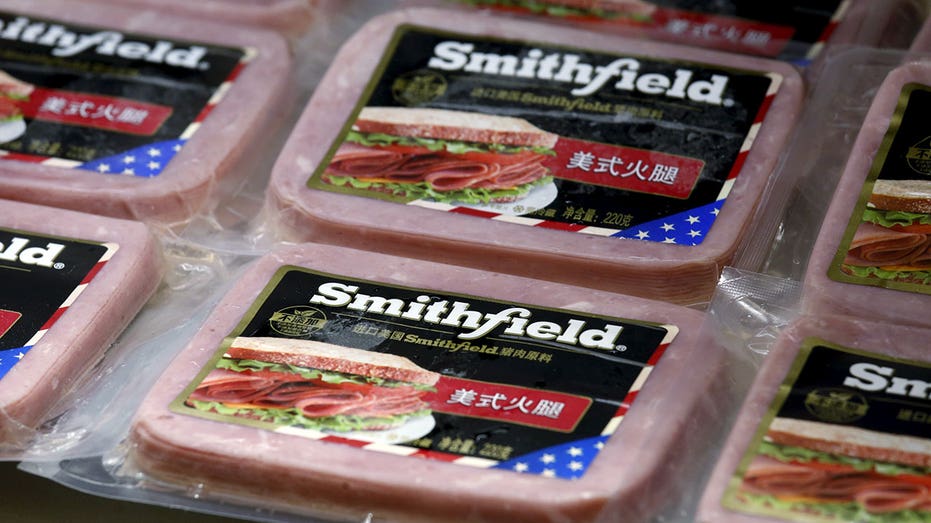Smithfield Foods, citing high costs of operating in California, to close pork plant
Food suppliers are currently struggling with increased costs of livestock feed, transportation and packaging amid high inflation
Smithfield Foods Inc., the largest pork processor in the U.S. by volume, is closing an 1,800-person plant in California and shrinking the size of its hog herd in the region, saying the cost of doing business in the state wasn't worth it.
Smithfield, owned by Hong Kong-based pork conglomerate WH Group Ltd., said on Friday that it would close the plant in Vernon, Calif., just outside of Los Angeles, in early 2023, citing higher taxes, utility costs and labor costs in the state compared with other areas where it operates.
The decision to close the plant comes as food suppliers are dealing with increased costs on items like livestock feed, transportation and packaging. Russia's invasion of Ukraine, one of the world's top grain-producing regions, has sent the price of livestock feed higher in recent months.
In California, the cost of utilities is 3.5 times higher per head to produce pork compared with the 45 other U.S. plants Smithfield operates, a company spokesman said. California officials didn't immediately respond to requests for comment.
CEO SAYS RESTAURANTS ‘CAN’T COMPETE’ WITH 'VIRTUAL WORKING' TREND
"It's increasingly challenging to operate efficiently there," said company spokesman Jim Monroe. "We're striving to keep costs down and keep food affordable."
Smithfield also said part of the reason it closed the facility was the regulatory environment in the state. Specifically, a state law passed by voters in 2018 and backed by the Humane Society, called Proposition 12. It requires breeding pigs, or sows, to be able to lie down and turn around in spaces in which they are housed, essentially outlawing pork produced using small gestation stalls in most circumstances.

Products of Smithfield, acquired by WH Group, the largest pork company in the world, are displayed at a news conference on the company's annual results in Hong Kong, China March 29, 2016. (REUTERS/Bobby Yip) ((REUTERS/Bobby Yip))
Pork producers and suppliers have resisted, saying such moves would raise meat prices by causing farmers to spend millions of dollars changing their operations, create supply-chain chaos and risk their pigs' health.
The pork processor said the workers at the California plant will be compensated until next year and have the option to relocate to another facility.
John Grant, the president of the United Food and Commercial Workers 770, which represents workers at the Vernon plant, said an agreement between the union and the company has been reached and that the union hopes another operator will take Smithfield's place.
FAMILIES IN AFRICA BURDENED WITH HIGHER FOOD COSTS, HUNGER BECAUSE OF RUSSIA'S WAR ON UKRAINE
Meatpackers have been increasing wages and expanding their benefits to attract workers to their plants in recent months. Some meat-industry executives have said they aren't able to operate at full capacity in many of their plants because of the pandemic. Tyson Foods Inc. said in its most recent quarterly earnings report that volumes in its pork business were down about 5% from a year ago because of staffing issues at its plants.
The supply of hogs in the U.S. also isn't expected to grow soon as higher feed, labor and material costs have weighed on pig farmers, making it too expensive for them to expand, said Lee Schulz, a livestock economist at Iowa State University. For processors, if the supply of hogs isn't increasing, it makes sense to cut high-cost plants that might not even be running at capacity, he said.
GET FOX BUSINESS ON THE GO BY CLICKING HERE
Smithfield plans to decrease its sow herd in Utah and is exploring strategic options to exit its farms in Arizona and California. Smithfield will service customers in California with its Farmer John brand and other brands and products from existing facilities in the Midwest, it said.




















